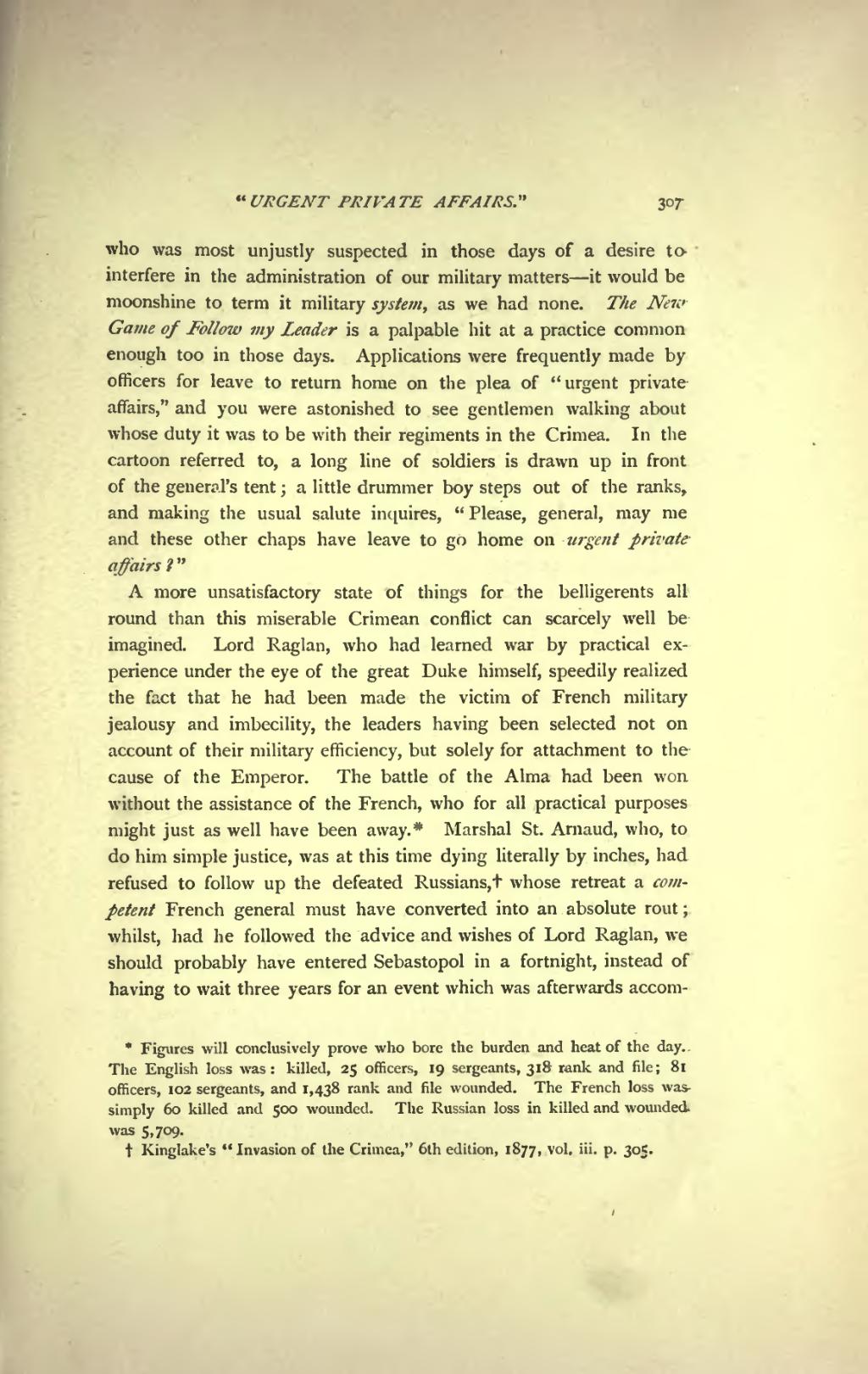who was most unjustly suspected in those days of a desire to interfere in the administration of our military matters—it would be moonshine to term it military system, as we had none. The New Game of Follow my Leader is a palpable hit at a practice common enough too in those days. Applications were frequently made by officers for leave to return home on the plea of "urgent private affairs," and you were astonished to see gentlemen walking about whose duty it was to be with their regiments in the Crimea. In the cartoon referred to, a long line of soldiers is drawn up in front of the general's tent; a little drummer boy steps out of the ranks, and making the usual salute inquires, "Please, general, may me and these other chaps have leave to go home on urgent private affairs?"
A more unsatisfactory state of things for the belligerents all round than this miserable Crimean conflict can scarcely well be imagined. Lord Raglan, who had learned war by practical experience under the eye of the great Duke himself, speedily realized the fact that he had been made the victim of French military jealousy and imbecility, the leaders having been selected not on account of their military efficiency, but solely for attachment to the cause of the Emperor. The battle of the Alma had been won without the assistance of the French, who for all practical purposes might just as well have been away.[1] Marshal St. Arnaud, who, to do him simple justice, was at this time dying literally by inches, had refused to follow up the defeated Russians,[2] whose retreat a competent French general must have converted into an absolute rout; whilst, had he followed the advice and wishes of Lord Raglan, we should probably have entered Sebastopol in a fortnight, instead of having to wait three years for an event which was afterwards accom-
- ↑ Figures will conclusively prove who bore the burden and heat of the day. The English loss was: killed, 25 officers, 19 sergeants, 318 rank and file; 81 officers, 102 sergeants, and 1,438 rank and file wounded. The French loss was simply 60 killed and 500 wounded. The Russian loss in killed and wounded was 5,709.
- ↑ Kinglake's "Invasion of the Crimea," 6th edition, 1877, vol. iii. p. 305.

